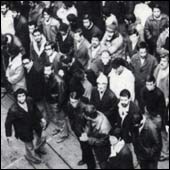The Village Elder
Call me Pádraig, or for those uninitiated in Gaelic, it flows like Porric. In Spanish, it translates to Patricio or Patrick in English. I hail from Chile, but my father wove tales of Irish ancestry, bestowing upon me a name that trips up the bravest tongues. I’m a scientist and a devout atheist, yet life, in its infinite complexity, has led me through experiences that have left me questioning the very foundations of how I perceive and understand the world.
I’ve traversed realms that hint at a profound connection with our Earth, one that science, with all its wisdom, struggles to articulate. Much like the story of an aged soul I encountered many moons ago.
It was a tumultuous time for me. I stood as a university professor and held a position of significance within the Chilean Socialist Party when the fateful military coup unfolded on that dire September 11th in ’73. For a few weeks, I managed to elude the relentless pursuit of the Chilean armed forces, only to be apprehended when I dared to return home to visit my family, betrayed by a neighbor. I endured weeks of beatings, torture, and confinement in secret dungeons, though those harrowing chapters, I shall not recount here, as my intent is to focus on the brighter facets of this tale.
I found myself imprisoned in the hold of a merchant ship called Lebu, in the port of Valparaíso, wondering what might befall me next. The holds were crowded with many souls, a motley crew ranging from university professors like myself to humble laborers who had toiled their entire lives, dreaming of a better world under Salvador Allende’s socialist government. We were all men, while the women endured their own torment elsewhere on the ship, subjected to torture, violation, and murder. We had all come to realize the grim devaluation of human life and were only just beginning to grasp the depths of the horrific repression that the Chilean people were enduring at the hands of their revered armed forces.
Yet, we also knew that not all were cut from the same cloth. From our dark confinement, we could hear the guards patrolling the deck above, their footsteps echoing a sinister rhythm. Occasionally, their steps would pause, and from above would descend a bundle of cigarettes or a package of food. By the time we noticed, the footsteps had already moved on. I never discovered the identity of the benevolent stranger or strangers who left us these small gifts. To me, these tokens of compassion and understanding meant more than the shared rations of food or cigarettes among the smokers. They represented a glimmer of hope in the darkness, a reminder that even in the bleakest of times, a stranger could show kindness and empathy.
Political prisoners in the holds of the Lebu.
One late November night, a naval officer bellowed at us, “The following prisoners, gather your belongings and make your way up to the deck!” He began to read out a list of names, mine included. I ascended to the Lebu’s deck with several others in tow. We were given instructions to board a bus that transported us to another part of the harbour, where approximately sixty-eight people from various walks of life had assembled. Afterward, we were ushered onto a barge, destination unknown.
Among the detainees, there were also about twelve marines on trial, led by Sergeant Cárdenas. These were marines who had learned months in advance of the coup being organized and had attempted to alert the government or political leaders. Regrettably, their warnings went unheeded, and they were subsequently apprehended, tortured, and incarcerated before the military uprising against the government unfolded.
Once we set sail, with everyone confined to the ship’s hold, anxiety began to gnaw at me. I approached one of the marines and said, “I have a suspicion they’re taking us out to sea and anchoring us there.”
“No, don’t worry,” he reassured me. “This barge is tracing the coastline.”
I regarded him skeptically, given our inability to see anything beyond the ship’s confines. “How do you know that? We can’t see a thing.”
He looked at me with the patience one reserves for a child and said, “It’s all in the ship’s movement. When a ship heads out into the open sea, it sways back and forth. When it’s skirting the coast, it rocks from side to side. They’re taking us up north, near Iquique or Antofagasta, where there are concentration camps.”
Indeed, that’s precisely what occurred. After several days at sea, we arrived at the port of Antofagasta, where we disembarked under high security measures. Waiting for us were buses that transported us more than a hundred kilometers to the former nitrate office of Chacabuco. It was an old mining town in the Atacama Desert, transformed into the largest concentration camp of the dictatorship.
Chacabuco Nitrate Office
In this ancient village, over twelve hundred souls came to reside. The prisoners inhabited adobe houses, neatly arranged in rows of ten buildings. Each house could accommodate six people, slumbering in bunk beds. It was under the watchful eye of the military, the air force, and the police carabinieri, all enclosed by wire fences and landmines. Yet, the community swiftly rallied to ensure the basics were met—entertainment, codes of conduct, and a semblance of law, overseen by the elder statesmen among us.
I approached the intellectuals, professors, doctors, engineers, and tried to carve out a semblance of normalcy in the midst of these circumstances. Days and weeks slipped by, filled with conversations with my fellow inmates and whatever literature came our way. One day, Jorge, a colleague who happened to be a botany professor, had a brilliant idea: let’s cultivate a garden using seeds salvaged from some of the fresh produce that arrived. We scoured the area and eventually stumbled upon a spot in the heart of the village, marked by a withered tree but boasting the most promising soil. The idea resonated with others; not only would it grant us access to fresh produce, but it would also provide a much-needed morale boost.
Yet, we faced a challenge that’s commonplace in any desert: water scarcity. The meager water supply that existed was just enough for human consumption. However, the beauty of being surrounded by engineers and professors is that they notice things many others might overlook. Like the fact that nighttime temperatures in the world’s driest desert drop significantly, causing the scant moisture in the desert’s atmosphere to condense into a delicate mist that dissipates rapidly once the sun rises. So, we decided to capture that mist.
We all gathered bags and scraps of plastic, fashioning a makeshift canopy suspended just a few inches above the ground on wooden supports. As the chilly night descended, it conjured that delicate mist. Yet, when the temperature began to climb, instead of vanishing into thin air, it clung to the plastic, condensing into tiny water droplets that collected and fell to the ground, moistening it. Once we saw our experiment take hold, we planted the first tomato seedlings in the spots where the drops fell each morning. The plastic shielded the plants during the night, and the ground’s moisture endured long enough during the day for the plants to sprout and thrive.
The experiment proved to be a resounding success, and with the assistance of more comrades, we cultivated a flourishing garden encircling the base of the old tree that had once provided shade in the village square for the miners who extracted nitrate to be shipped worldwide. “Nitrato de Chile,” proclaimed the signs, some of which can still be spotted as far away as Spain.
One early morning, Jorge burst into the small house, agitated and excited. He told us we needed to get up and head to the garden, then rushed off without further explanation. So, I hastily dressed and joined a few others to see what was happening in the garden. Upon arrival, nothing seemed out of the ordinary. Everything appeared just as it had the day before. After a while, Jorge returned with more companions, some still bleary-eyed from sleep. “What’s going on, Jorge?” I asked. “I don’t see anything.” Jorge looked at me and addressed us all, “Don’t look down. Look up!” We all raised our gaze and were astounded to witness the old village tree sprouting leaves. For a considerable time and in silence, we watched as the village elder came back to life. In that moment, that tree earned the affection, admiration, and respect of everyone present. Word spread throughout the prison village, and an unending procession of men arrived to visit and marvel at the tree’s resurrection.
From then on, we continued tending to the garden, irrigating it with the water we collected by capturing the faint desert mist. However, our time and care were devoted to the village elder. That tree, against all odds, had survived all that life had thrown at it and, thanks to a few drops of water, had once again brought forth leaves into the sunlight. Almost everyone set aside a portion of their water ration, and in the mornings before the sun could scorch the earth, we poured it around the tree. With each passing day, it sprouted more leaves and transformed into a lush tree that shielded our garden from the midday sun.
It was nearly the end of March when I saw a naval officer engaged in a heated conversation with the camp commander, an army captain. The captain abruptly turned and headed towards the building housing his office. The naval officer stood by the tree, appearing indecisive. Then, something extraordinary occurred, something that even pulled the officer from his thoughts and made him turn towards the tree. A small bird was singing among the branches. Gradually, the daily hustle and bustle ceased, and all that could be heard was the beautiful song of a bird that had no business being in the heart of the Atacama Desert. The driest and most lifeless place on Earth, yet there it was, singing as if everything were perfectly fine, as if there were no troubles in the world. Almost as if it were thanking us all for helping the village elder.
The following day, we were informed that the navy had decided to relocate all its prisoners from the Chacabuco concentration camp, including myself. A day later, a plane arrived to take me and the other sixty-seven prisoners back to Valparaíso. During the flight, we learned that the naval officer had discovered that the infamous “Caravan of Death” led by the army general and despicable scoundrel, Arellano Stark, was heading from Santiago to the concentration camp. Its orders, directly from Pinochet, were to detain and murder the most prominent leaders of Allende’s Popular Unity. Stark carried out these orders without hesitation when he arrived at Chacabuco two days later. By removing his sixty-eight prisoners from there, that naval officer saved my life, driven by something as military as honor. He was a gentleman and would not allow a psychopath lacking in honor like General Arellano Stark to kill any of his prisoners.
I’ll never know for certain, but when I look back on those moments after many years, I think that perhaps that “honor” shone through the mind of that naval officer after seeing a tree that should have been dead and a bird joyfully singing where it had no business being, so distant and inhospitable. Life suddenly had value.
Coincidence? In my youth, I believed it was. Now, I’m not so sure, and with each passing year, I am increasingly convinced that it was indeed that tree, the village elder, who saved my life.
The story continues in “Return“.
In this section, you can add comments about this story or contribute to the writing piggy bank.
The writer’s piggy bank.
If you’ve enjoyed the story, you can help by donating whatever you believe the story is worth. Just click the ‘Donate’ button and enter the amount you deem appropriate.
Thank you!
Alejandro.
“Donate” uses the PayPal secure platform.







0 Comments